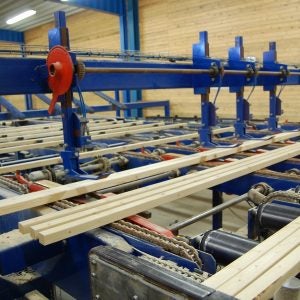TTF sustainability manager Anand Punja said that the case of the iconic US guitar maker was a warning to timber traders in the UK and the rest of Europe on the cost to bottom line and market reputation of breaking anti-illegal timber legislation.
It underlined the need for them to understand and prepare for the new European law, which comes into effect next March. Gibson paid US$350,000 to settle its three-year-old Lacey Act case and avoid criminal prosecution for importing illegal Madagascan ebony (ttjonline August 8, 2012).
It also forfeited US$260,000 of seized timber stocks. “Besides the payout itself, there is also the potential damage to the company’s image and brand, and the costs of having to implement new import controls and adapt to the use of different timber species,” said Mr Punja.
”It’s estimated that the real cost to Gibson was closer to US$1bn.” The penalties that UK companies will face for breaking the EUTR will not be known until the government puts it into UK law, and this may not be until the new year. But
Mr Punja said they are likely to cover a spectrum, from seizure of goods, through fines, even prison sentences for serious or serial offenders.
“The National Measurement Office (NMO) [the Competent Authority (CA) responsible for policing the EUTR in the UK] will want to have the widest range of tools at their disposal and currently probably are ruling nothing out,” he said.
The TTF is running a series of workshops and presentations on the EUTR and its Responsible Purchasing Policy (RPP), the due diligence illegal timber risk assessment system designed to help compaies achieve compliance with the law. The first took place in London at the Building Centre.
It will next address the Scottish and North West Timber Trade Associations and participate in a British Furniture Association workshop on the issue. In October it will run an event on due diligence illegal timber risk assessment for temperate wood.






